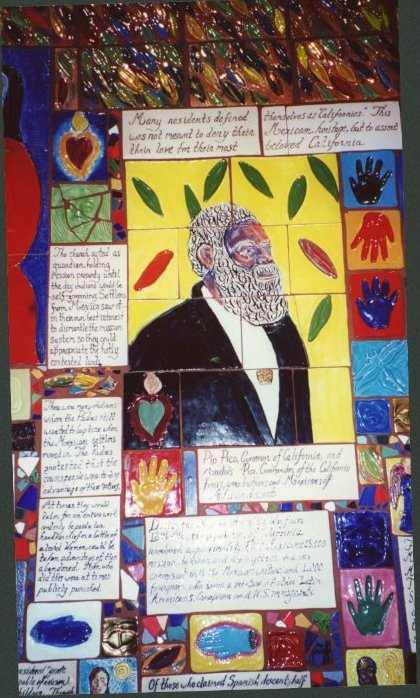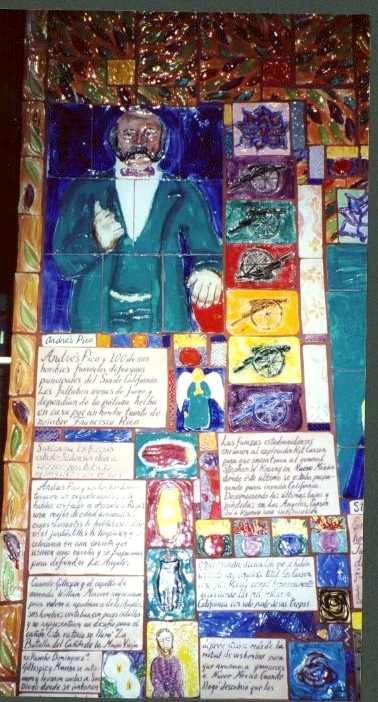![[Aztec Club Logo]](Aztec7.gif)
| Metro
Artwork |
|
| Next
Page |
|
| Main
Menu |

Pio Pico was Governor of California during the Mexican War. Despite his family's wealth, he received little formal education and was literate enough only to write his name and little else. An active politician and business man by the mid-1820s, Pio Pico became one of the largest landowners in California. By 1832 he became acting governor after the overthrow of Manual Victoria, the newly appointed governor from Mexico City. Irritated, as many Californios were, by Mexico's lack of attention to California and aggravated by Mexico's policy of exiling its criminals to its "northwest frontier" (California), Pico sought separation from Mexico and an alliance with an outside power. He favored a British protectorate while others favored the United States or France. In 1846, Pio Pico again undertook the role of governor and tried to organize a defense against invasion by the United States while seeking British intervention. When his strategy became impossible, Pico announced the hopelessness of the situation and fled south to Sonora. He returned to California as a rancher after the end of the Mexican War. He took part in local and county politics and supported the Union during America's Civil War. When in his early 70's, Pico built the largest hotel in Los Angeles, Pico House. However, before his death he lost all his landholdings due to defaulted loans. He moved into the home of his godson, John J. Warner, after losing his last piece of property, and died penniless in 1894.
Born in San Diego into a prominent Californio family, Andreas Pico was a customs receiver, politician, and soldier in the 1830s and 1840s before taking an active part as a militia captain in the defense of California during the U. S. invasion of 1846 and 1847. His older brother, Pico, was governor of California. During the Mexican War he commanded a force of about 100 horsemen who, though poorly equipped with lances attached to crude willow poles, defeated the American force in the Battle of San Pasqual in December, 1846. Unable to follow up this victory with others, Andreas Pico and his force eventually surrendered to American forces. As chief of the military forces, he took part in the peace talks on behalf of Mexico and signed the Treaty of Cahuenga ending the war in California. |
Copyright © 2015. All Rights Reserved.
|

